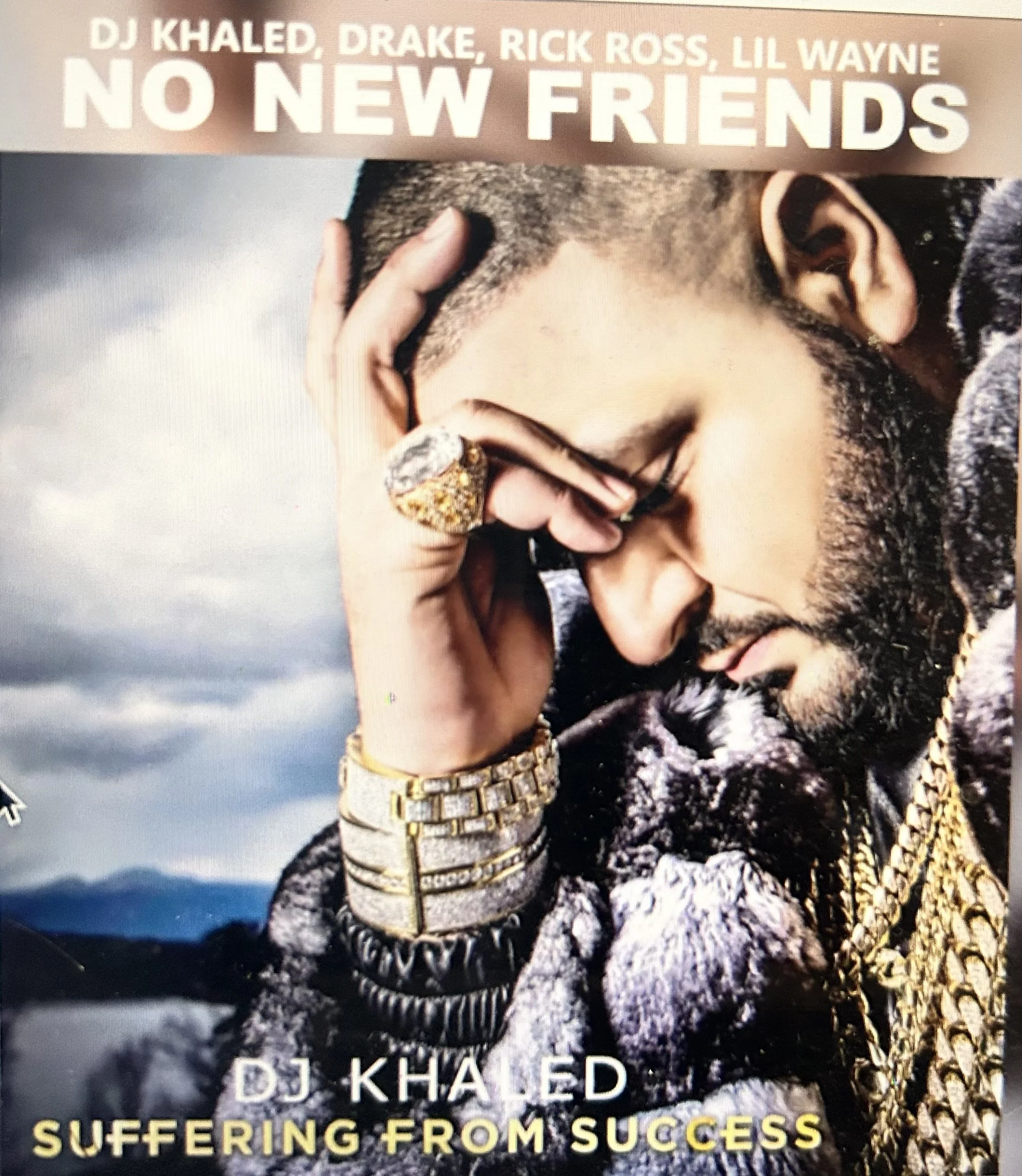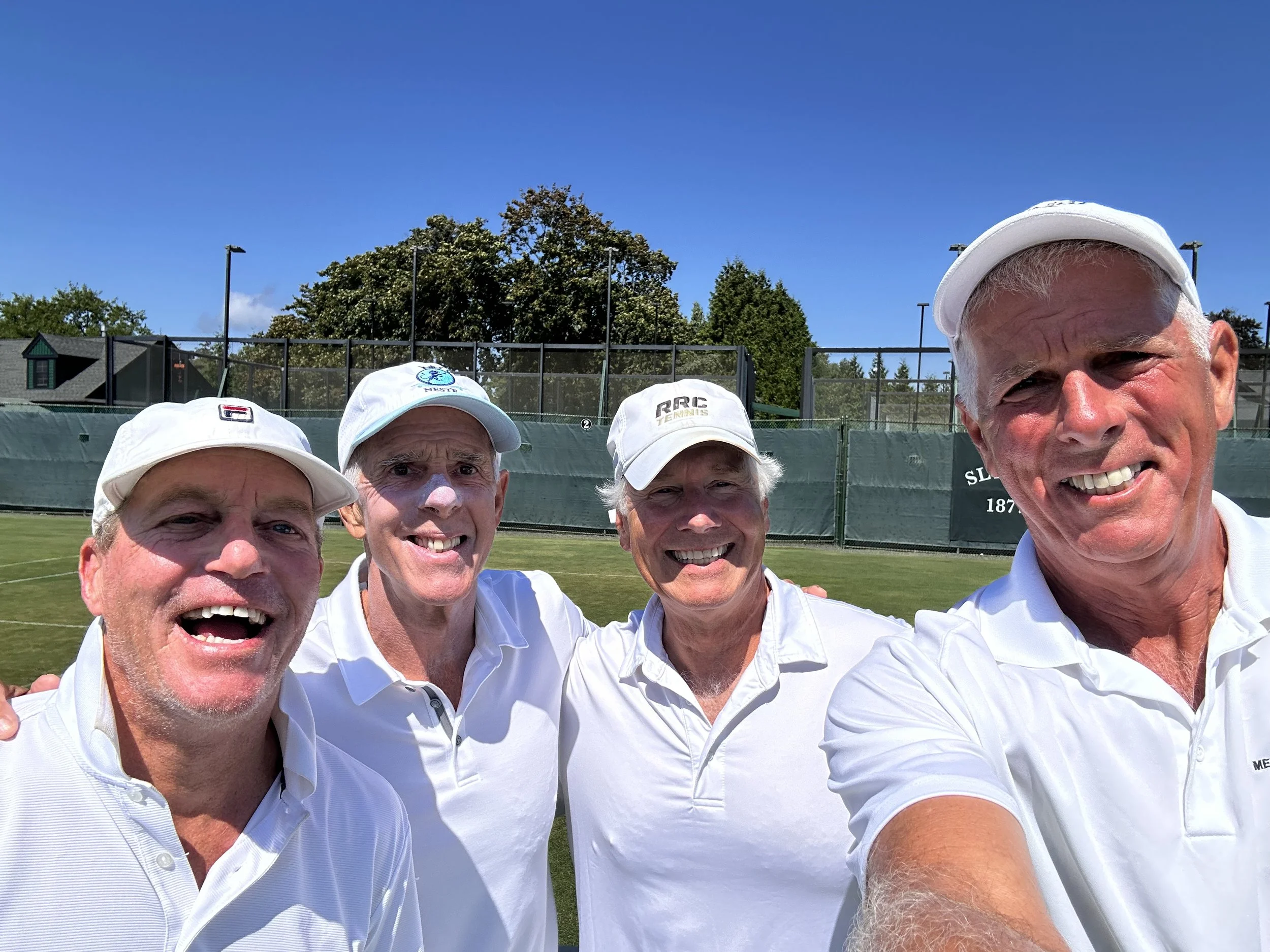You Got To Have Friends
From time to time I share with you various unsuccessful or untried (but brilliant) schemes my wife and I have concocted over the course of our marriage.
One of the most intriguing, and problematic, was our idea for a “couples dating service,” which would attempt to solve a truly wicked problem: it is REALLY hard to make new friends as a couple.
Your wife may have a good friend from work or play that they enjoy, but that doesn’t mean you will like them, and there seems to be less than a coin flip of a chance that you will become buds with your wife’s friend’s partner.
With the latest studies showing that 60% of newly-married couples first met through dating apps, it’s clear that algorithms have cracked the code on getting single people together with other compatible singles. In this era of big data, how hard would it be for a company to create an app where married couples could review other married couples profiles, then swipe right to try out a friendship?
Well, there’s… the marketing problem. Everyone we have ever talked about the idea can’t get beyond the idea that the idea is really about swinging or swapping.
NOOOO! We just want more “couple friends” – configurations of four people that enjoy spending time together hanging out, talking, having dinner, going to concerts or the beach or on walks. Being friends.
I’ve been thinking about friendship for the past few days because I’ve been in one of those situations where I am reminded how much I suck at making new friends. I arrived at a tennis tournament in New Jersey on Monday that brought me together with 60 other players from around the country. They are all men, all within five years of my age, and all love tennis. It should be the perfect recipe for making some new friends.
Instead I’ve felt like I’m back in high school again, getting up the nerve to ask someone if they would like to practice with me, sidling up to cliques of people who already know each other and trying to find a way into the conversation, looking for the right question to ask to begin to get to know someone new.
I’ve been to a few of these tournaments before so there are some folks I’ve met in the past that I can glom onto, but our conversations are pretty limited. We ask about each others’ injuries (this is old people’s tennis, after all) or results. I may remember a trip they were going to take or a friend we had in common. But that’s about it. The encounters are brief, superficial, transactional.
But then I see a guy I’ll call Dave (because, well, that’s his name). A big, lanky, sunburnt former basketball player, Dave has just started coming to these tournaments, but every time I have seen him this week he has been in deep, jovial conversation with some other player. At least twice I’ve asked him how long he has known the person he’s talking to and he’s said “Oh, we just met.” I’m confident he is on his way to real friendship with several of these folks.
*******
The release, a decade or so ago, of a DJ Khaled song called “No New Friends” captured a belief by some that we didn’t need to renew our friends – we should just stick with those that we’d had for a long time. But studies regularly show we lose about half of our friends every seven years. We need a replacement strategy.
DJ Khaled might’ve been happier if he had some new friends…
Maybe more importantly, there are a string of studies showing that one of the most important secrets to long-term happiness and extended life is to consistently maintain a strong group of friends. One longitudinal study showed people with the most friends live 22% longer than those with the fewest; another showed having good nonfamily friends was even more important to longevity than having close family; another showed people with friends and close confidants are less likely to be depressed and die premature deaths. Julianne Holt-Lunstad, PhD, a professor of psychology and neuroscience at Brigham Young University who studies how relationships affect the body and brain, summarizes the research this way: “When people are low in social connection—because of isolation, loneliness, or poor-quality relationships—they face an increased risk of premature death.”
Nuff said. So how do I as an introvert renew my friend group? Dave seems like he can make them in any setting. What have I learned this week from watching Dave?
That’s Dave on the right. In addition to amazing social skills, he also has long arms.
He takes time. Too often when I am talking with someone I have an imaginary time clock rolling in my head. In the middle of the conversation I start thinking about the next thing I have to do. Dave really seems to enjoy the thing he IS doing: having a conversation with a real person in real time.
He is you-centric and interested. It’s not going to be much of a friendship if one person asks all the questions and one does all the talking. Dave manages to both: ask good questions and supply details about himself. He learned I’m going to Oregon soon and just rolled with it – we had a fun 15-minute conversation about sites and scenes that ended with me knowing more about him and him about me. And then the following day we continued that conversation. Just before a doubles match we were playing against each other, he noticed I was not wearing a brace on my calf and said something. He wanted to make sure I hadn’t forgotten.
If you haven’t picked up on it, I’m on something of a quest to make new friends in my old age. Here are some other things I’ve been learning that seem to make a difference.
Put yourself in situations where new friend-making is possible. A year and a half ago, I put together a list of people I had always admired and invited them to join a dinner discussion group that meets four times a year. I’m getting to know some of them through that, as well as one-on-one outside the meetings. Then I thought about my local tennis friends, and realized they weren’t quite friends – we would spend time together on the court but I knew nothing about them as people. So I started a “tennis book” club. Then I identified another potential friend to see if he and his wife wanted to go out to dinner. That appears to be working and he’s also invited me to his book club.
I don’t know how many friends will come out of these activities, but I feel like I have a better chance. People like Dave probably don’t need clubs or discussion groups, but a lot of us do.
Get beyond biology and biography: It’s fine to commiserate with other people about aches and pain. And, sure, you can always talk to someone about where they live and work. But friendship appears to be less about the accumulation of data about one another and more about the creation of chemistry. One study that paired strangers off for discussions found it was the people best able to riff off of each other, “the co-creators — the ones who treated conversation as an opportunity to build a momentary reality belonging uniquely to them — who felt the strongest spark and were most eager to talk again.” Dave is a natural riffer.
Follow up: The friends I am most impressed with devote time to friendship. They send a nice email or text after our conversation. They remember to reach out regularly And reach out again if I don’t respond. After my match with him this week, Dave took the time to follow up and reference a couple of specific things that happened. That habit of mind is something that I can develop, but it takes time and generosity.
We don’t need many close friends, but if we want them, we have to invest some time in them (photo Helen Lopes, Unsplash).
According to the American Community Survey (ACS), the percentage of men with 6 or more close friends has gone down by half (was 55%, now 27%) since 1990, and 15% of men report having zero close friends. As I wrote in a previous column, “our time for friendship is being crowded out, experts say, as we work longer hours at our jobs, spend more time with our kids and increase our time online alone. The pandemic played a role – about half of people reported it made maintaining friendships more difficult.” And it remains hard today.
Unless we are Dave, that means a lot of us have some work to do if we want to live long and prosper.
And if we want “couple friends,” we may need the habits of Dave AND an app.
So here’s my gift to you, dear entrepreneurial readers. The “Couple Friends” idea is yours, royalty free. Come up with a better name, work through the marketing problem, app-ify it and make millions (charge extra for the version that solves for couples AND young children).
We will be your first customers,
-Leslie
Notes:
Bette Midler “You Got To Have Friends”: https://www.youtube.com/watch?v=Fv2HtvibWhc
We lose half our friends every seven years: https://www.sciencedaily.com/releases/2009/05/090527111907.htm
More friends help you live longer: https://pmc.ncbi.nlm.nih.gov/articles/PMC1757078/pdf/v059p00574.pdf
Other impacts of friendship on health: https://www.apa.org/monitor/2023/06/cover-story-science-friendship
The importance of riffing for friendship: https://www.nytimes.com/2025/09/04/opinion/riffing-banter-friendship-connection.html?smid=nytcore-ios-share&referringSource=articleShare
American Community Survey on friendship: https://www.americansurveycenter.org/research/the-state-of-american-friendship-change-challenges-and-loss/


